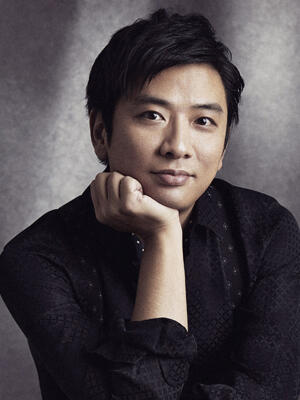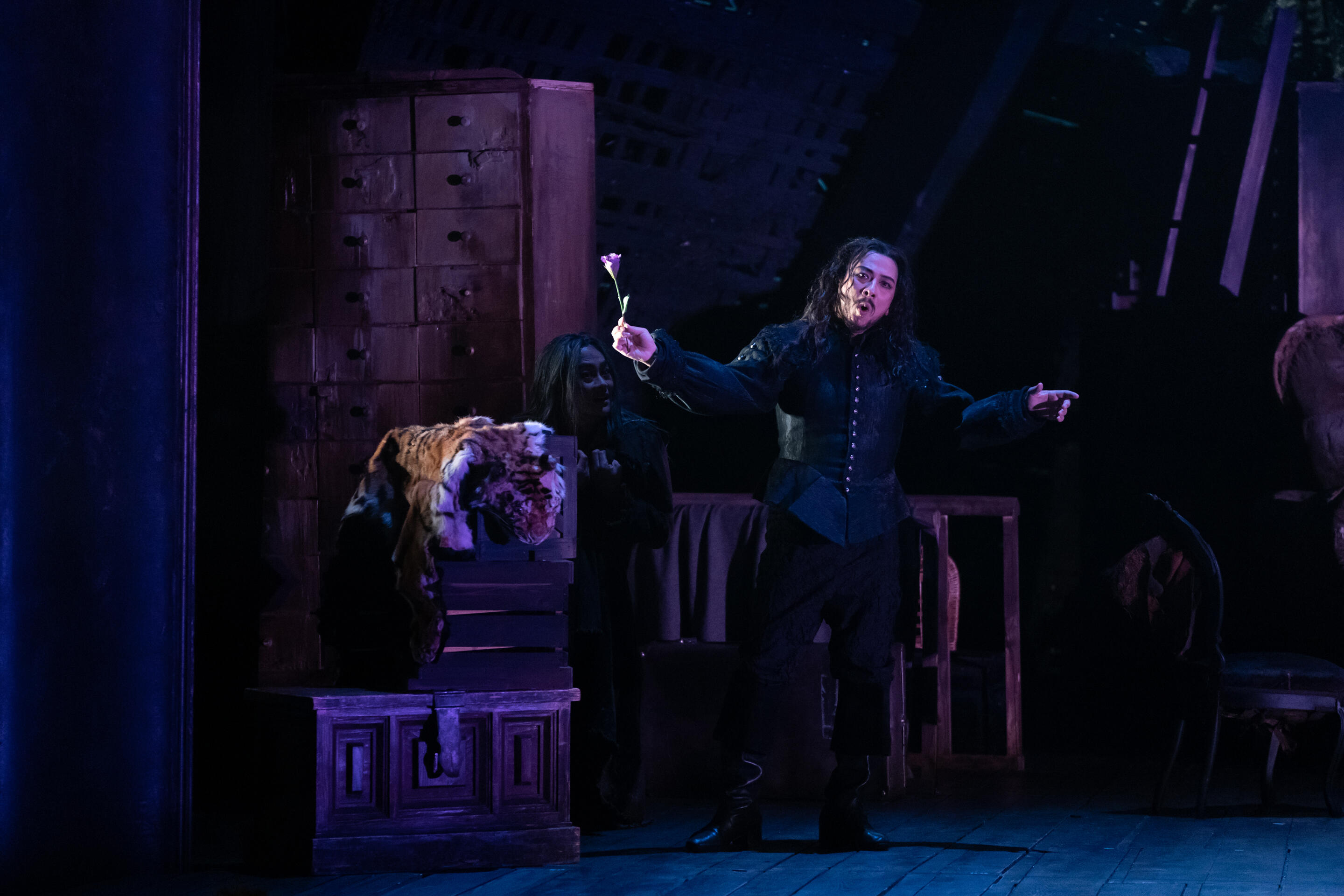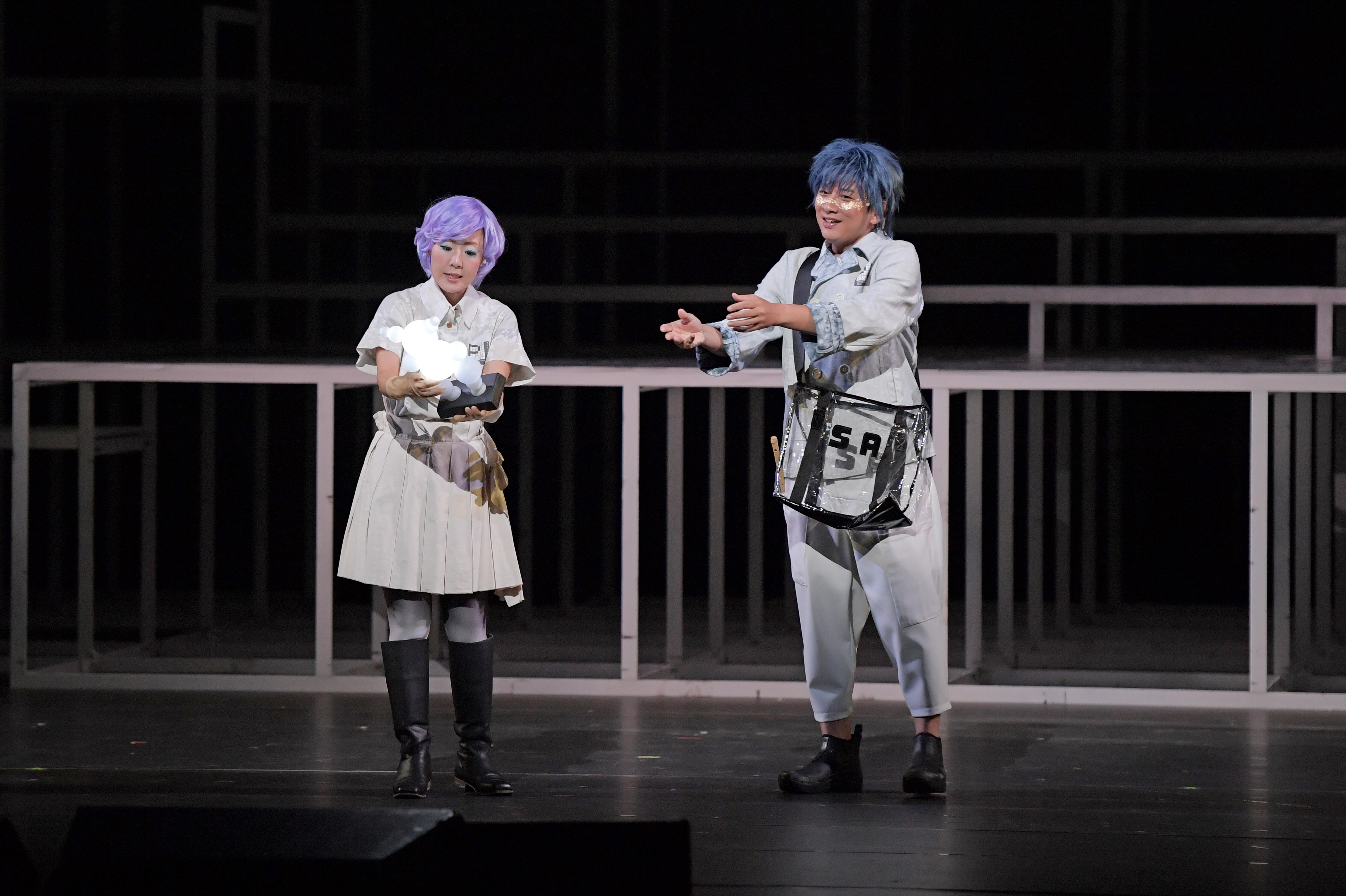Interview: FUJIKI Daichi on "Giulio Cesare"
 ―You were cast in the production of Händel's Giulio Cesare which was due to open in April 2020. The rehearsals were already in progress with conductor Rinaldo Alessandrini and director Laurent Pelly when the production had to be cancelled because of the approaching pandemic. I remember watching the video of the last rehearsal, which the theatre released, and thinking what a shame it was because the singing and acting were all so wonderful.
―You were cast in the production of Händel's Giulio Cesare which was due to open in April 2020. The rehearsals were already in progress with conductor Rinaldo Alessandrini and director Laurent Pelly when the production had to be cancelled because of the approaching pandemic. I remember watching the video of the last rehearsal, which the theatre released, and thinking what a shame it was because the singing and acting were all so wonderful.
Looking back at those days two years ago, I remember we were all becoming increasingly anxious as the rehearsals went on. I think we all felt that the performance wasn't going to happen, but no one was admitting it. Finally we were informed by e-mail that the production would be cancelled, but at the same time the theatre suggested filmimg what we had done so far. We were all worried about the infection so we didn't talk much except for the rehearsal. That day, Maestro Ono came to our rehearsal room and promised to reschedule the production in future seasons - probably in two years time. We were all encouraged by his words; that some day we could gather again. Maestro Alessandrini said "it's only two years", but to be honest, I couldn't imagine what the world would be like in two years. After the filming, we all clapped, and because we weren't able to go for a drink together, I went alone to eat sushi at the Tokyo Opera City next door. It was binge eating (laughs). Of course I was disappointed that the opera couldn't go ahead, but more than that, I was worried about what was happening in our world. Looking back now, two years have flown by very quickly though.
―We are so happy that finally Giulio Cesare will be staged in October. What are your expectations?
I made my debut at the New National Theatre, Tokyo [NNTT] in Le nozze di Figaro in 2003 when I was at the New National Theatre Opera Studio, so originally Giulio Cesare would have been my comeback 17 years later. Therefore, I was determined to do really well and probably had put too much pressure on myself. However, after Giulio Cesare and other productions were cancelled due to the pandemic, NNTT reopened in October 2020 with Britten's A Midsummer Night's Dream, in which I appeared as Oberon. Subsequently, I also sang the role of Akira in the rescheduled premiere of Super Angels, a new opera, at the NNTT. In A Midsummer Night's Dream, I wasn't worried about my own success because the theatre's future hung on the production. As a result, now in this Giulio Cesare production, I no longer feel the pressure and I feel I can sing better and express myself more.

A Midsummer Night's Dream (2020)

Super Angels (2021)
―Some people in the audience may not be so familiar with baroque opera. What should they listen out for?
In general, baroque operas have complicated plots and there are so many characters. So if you read the synopsis, it's like A and B are siblings but they don't know it, and B and C are enemies etc... it really makes little sense even to us, so it will probably be same for the audience too. However, baroque opera is where opera all began and I feel that the beauty of classical music originated here. In fact, one can say that about the music of that era in general, not just opera.
―At least Giulio Cesare is based on the story of Julius Caesar so it's probably easier to follow than some baroque operas. What about Händel's music, and the production?
Once when I was studying at music college, we were asked to write the name of our favourite composer, and I wrote Händel, although at the time I only knew his Messiah and a few other pieces. I think Händel's music sounds beautiful when sung a cappella, and there is a clear pulse in his music (sings "Lascia ch'io pianga" from Rinaldo). Laurent Pelly's staging is great fun. The set design is grand and scenic, and some of my costumes are very heavy!
―You are singing the role of Tolomeo, Cleopatra's younger brother, and it's a role that requires a lot of character acting.
Tolomeo is an evil king and there is even a scene where he's surrounded by a harem of beautiful women (and even some handsome men). It's a very intimate scene and I don't know how much of it we can recreate because of social distancing, but it would be interesting to compare it with the original production. Actually, I haven't played many evil characters before. I've had offers and tried, but I didn't think I looked the type. So now I'm giving it another go after some years.
―I'm sure you'll be brilliant as the evil king! One of the pleasures of baroque opera is to enjoy the virtuosity of the singers. How has it been working with Maestro Alessandrini?
Well, in 2020, we were still working on the staging when it got cancelled, so I'm looking forward to finally working with the Maestro in depth. We have gone through the arias together and discussed the embellishments in the reprise sections. I'm particularly looking forward to rehearsing with the orchestra. I want to absorb a lot from the experienced Maestro.
―In Händel's day, roles such as Cesare or Tolomeo were sung by castrati. Interestingly, you've produced and starred in an opera titled "The 400 year-old Castrato". Do you sometimes wonder how these roles would have been sung in those times?
In "The 400 year-old Castrato", we look back at the age when castratos were superstars, unthinkable today, and imagine what the culture and social environment were like at the time, and what would happen if castrati existed in our age. So in that sense, it's a fantasy. But it's amazing that an opera from 300 years ago is still being performed today, and there must a reason why it has survived all those years. When we perform opera though, we must think about how to deliver it for the modern age, and I have to find my own style by working with the text and the score, rather than imagining how it might have been performed in Händel's time.
―Finally, a message for the audience?
The opening work of the new season defines the season both for the audience and for the theatre, so hopefully we can get off to a flying start. I hope the audience will come to be immersed in the wonderful music and staging, and to take their minds off the stress of daily life for a while. Actually, I don't like saying "I hope you will enjoy the performance" to people because I feel it draws a line between us. I believe there are no barriers among the people who are in the theatre. The only difference is that some are on stage, some are back stage, and some are in the auditorium. They are all there for the music. Unless we have the performers, the audience, and the creative team supporting the performance in the same space, the theatre cannot function. So I would like to say, "let's enjoy it together." The time in the theatre belongs not to any one person, but to everybody.
(Interview by INOUCHI Mika)
Opera ❝Giulio Cesare❞
On Stage 2, 5, 8, 10 October.
See here for more information.

